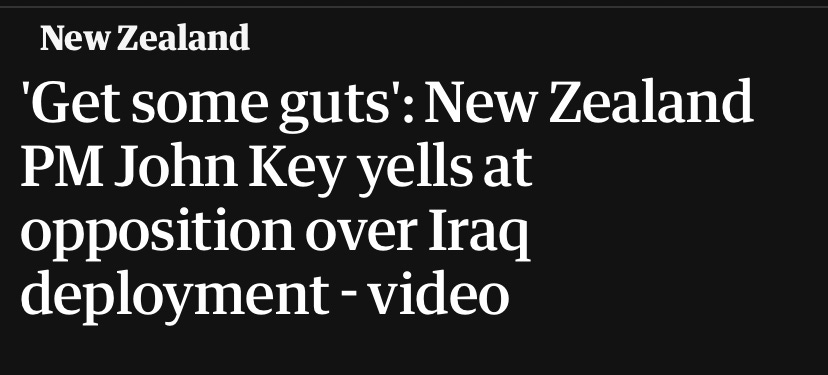Anger
There are times when a politician ends up in the press and words like intimidating or shrill or too loud or too much or overly emotional start coming into play.
When it happens, it usually sparks days or weeks or months of reporting that dissects the politician’s character.
People start coming out of the woodwork, everyone has an opinion on what allegedly happened, and the overall cacophony inspires the desired outcome - silence.
Of course, when I say politician, I mean, a woman who has behaved in a way that patriarchy has not designed for her to behave.
When I say patriarchy, I specifically refer to misogyny.
Misogyny is “the “law enforcement” branch of patriarchy - a system that functions to police and enforce gendered norms and expectations, and involves girls and women facing disproportionately or distinctively hostile treatment because of their gender, among other factors.”
- Kate Manne
And when I say silence, I mean the implicit lesson for any women thinking about behaving in ways outside the box designated for them. I also mean silence from those who have the power and privilege to dismantle the box.
“Misogyny can afford to be selective because its fundamental goal is enforcement. Women who know their place do not need to be put in it.”
- Kate Manne
Women who know their place also never need to be asked what they are angry about.There are clear rules about who is allowed to show anger, and who is not.
While we are on the topic of anger, a few thoughts on what we might like to consider worthy of dissecting in New Zealand:
Māori and Pasifika women now earn on average about 25 percent less than Pākehā men.
In 2021, it was reported that 200 sexual assault cases each month were waiting to be assigned to an investigator.
In 2021 more than half of the people who reported sexual assaults were children and young people when they were assaulted.
Most who reported were female. 20% reported more than one assault.
One in three New Zealand women have experienced physical and/or sexual intimate partner violence in their lifetime.
Over 90% of sexual violence is not reported to police. Where it is reported, the majority of reports do not progress through the criminal justice system to conviction.
In 2023, the advice was that sexual violence victimisations that did progress are taking longer to get through the court, with an increase in cases spending over two years enduring the process.
Let’s talk about anger.
Let’s talk about behavior like intimidation, and control.
Globally, around one in 4-7 women experienced stalking. This absolutely happens here, but New Zealand does not have any specific laws against stalking.
Half of people charged with non-fatal strangulation or suffocation escape conviction in New Zealand. This is inexplicable given manual strangulation is the biggest sign domestic abuse will turn deadly.
54.8% of reports to Netsafe are from women and 5.4% from gender diverse people.
Let’s talk about the fact that not all violence is physical.
1 in 3 women are at risk of developing poor mental health.
Older women (those aged 55 and over) are the fastest growing cohort of homeless Australians. It’s a similar stark picture for New Zealand.
The Ministry for Women estimates women earn nearly $900,000 less than men over a lifetime.
Let’s talk about coercive control, which is gendered and is most often perpetrated by men against women and children to maintain dominance, to restrict freedom and autonomy.
Let’s talk about behaviour.
Let’s talk about how it is that we tut tut on the front page of every newspaper every time a woman dares to breathe differently and utterly, miserably fail to talk about why they might have done so.
Let’s talk about the willingness in New Zealand to deprioritise pay equity, women having a voice and a seat at the table, the right to make reproductive health decisions, the ability to own a home, the right to obtain medical support without a side of misogyny, the ability to be a leader - including a politician.
Let’s talk about the fact that violence takes many forms.
Let’s talk about the passive language that mentions all of these things happening to women with no attribution of responsibility - or accountability for a change in behaviour (or policy.)
Let’s talk about why we seem to be able to call out a women behaving in a certain way but totally unable to call out evidence of violent behaviour and violent policy across the board.
Let’s talk about why we get angrier about a woman being angry than we do about the way women are treated in New Zealand.
If we’re going to talk about anger - let’s start with that.


The whole Bear vs Man in the woods thing that’s taken over Facebook is very interesting and enlightening